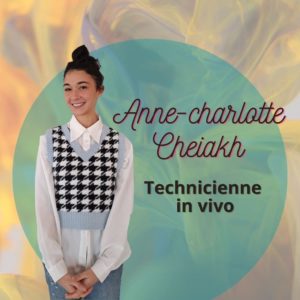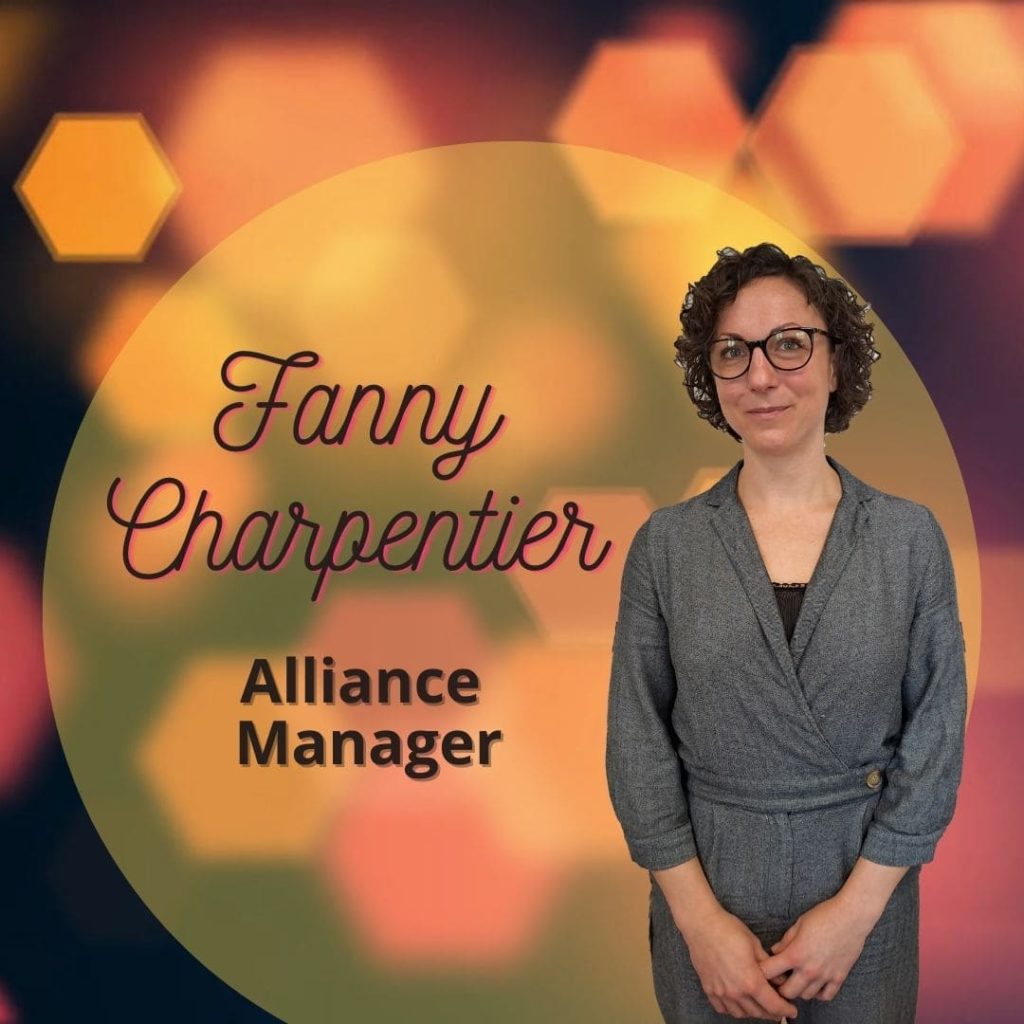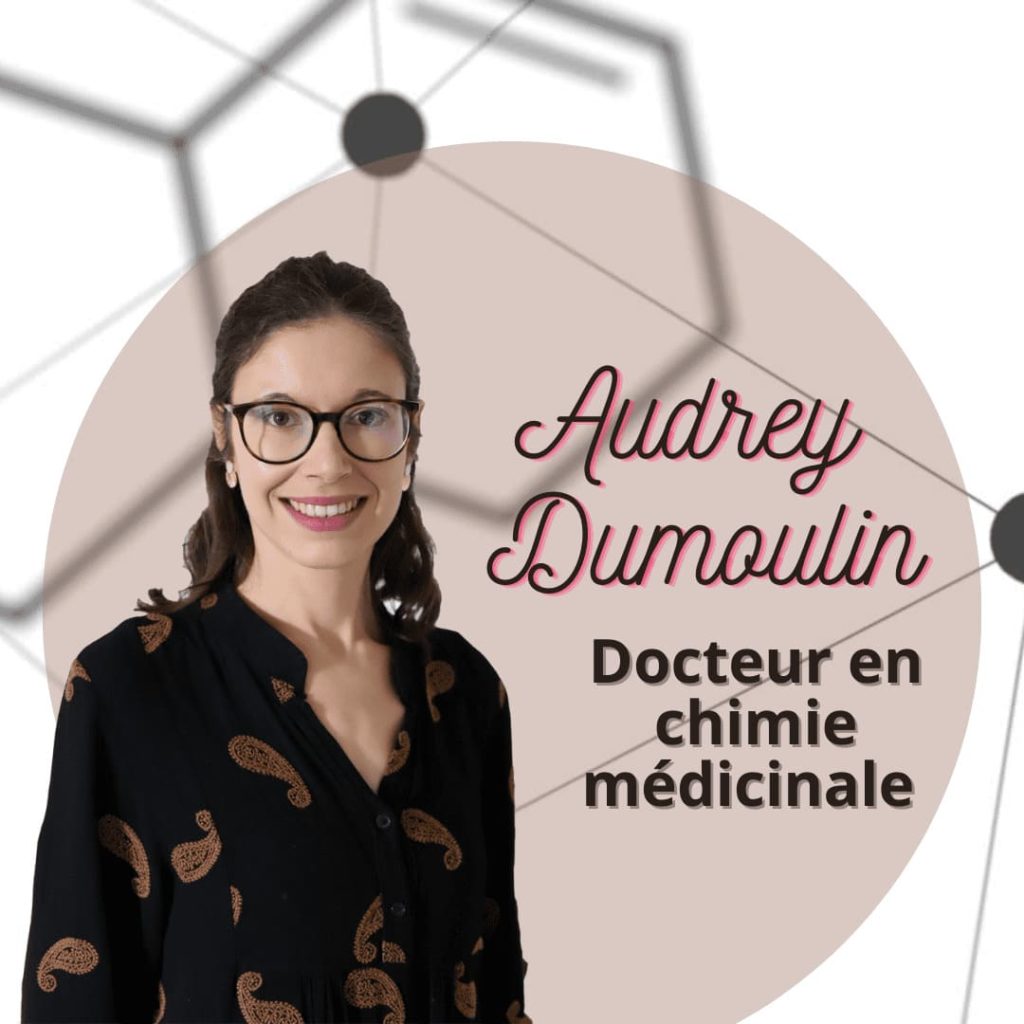


The International Day of Women and Girls in Science: meeting with Oncodesign Services women employees
Initiated in 2015 by UNESCO and UN-WOMEN, 11th February has been proclaimed the ‘International Day of Women and Girls in Science’. Its objective is to promote women’s access and participation to the scientific, technological, engineering and mathematics communities.
For this occasion, we met with four women employees of Oncodesign Services to exchange on their careers, their daily tasks and their ambitions for a better valorization of women in Science.
Meeting with Anne-Charlotte, Fanny, Alexandra and Audrey !
___________________________________________
Anne-Charlotte Cheiakh – In Vivo technician
|
|
 |
I wanted to go into a “useful” profession. After doing a first year of medicine at university, I decided to go into biochemistry. I’m curious and I like to rack my brain to find new solutions to existing problems. This is the reason for working in a company like Oncodesign Services…
I was attracted by the thematic of cancer. We have all been confronted with this subject in one way or another, and it is a noble cause and a real opportunity to be involved in the search for new therapeutic solutions. Nowadays, I’m in charge of planning in vivo studies, from the preparation to running them in the laboratory, up to sending samples for further analysis in-house or at our partners.
|
For the usefulness of our profession and the reasons we are working for. Science is making progress in many areas, and it is not only reserved to men to save the world! More specifically in the in vivo field, we are as close as possible to the “human” case. It is a great satisfaction when the results of a study are promising.
I don’t feel any inequality in my day-to-day work, particularly within the technical teams. The only notable constraint is that pregnant women are not allowed to work in the laboratory. But this can be compensated for by other tasks (adapting protocols, analyzing data, etc.) that are just as useful to successfully complete a study.
Women Nobel Prize winners in general, but also those who do not receive this distinction despite their crucial discoveries. I have the example of Rosalind Elsie Franklin who discovered the double helix structure of DNA in 1953. This discovery earned three researchers the Nobel Prize for Medicine in 1962, even though they had used her work without her knowledge or mentioning it… This shows that women are also capable of and responsible for great things; they are just perhaps more discreet or less highlighted! More broadly speaking, I also admire all the women who reach a position of “managers” and/or with important responsibilities; it motivates and encourages us to give ourselves the means to achieve it too!
|
|
__________________________________________
Fanny Charpentier – Alliance Manager
|
|
It was always obvious to me. I was passionate about understanding the living world, how the human body works, how cells interact, etc.
I joined as an in vivo technician after several professional experiences in different fields, not only science. I knew Oncodesign Services because I already had the opportunity to do an internship there while at university. I then moved on to the position of alliance manager, a position that requires a good knowledge of the different scientific capabilities (in vitro, in vivo, DMPK, bioanalysis, etc.) without necessarily being an “expert” in each of these fields. This position gives me a global vision of a research program, with many interactions with clients, technical teams and scientific directors. I have to make sure that everything is running smoothly from the beginning to the end of a study.
|
 |
What I would like to hear is that if you love a topic then give it everything in order to succeed. Unfortunately, it is sometimes difficult not to feel restricted by prejudices related to gender, social class… But that shouldn’t stop you to go for it. However, you should not just “choose” a field in which to evolve. You also have to ask yourself other questions such as: do I want to do research and spend time reading the literature? Do I want to be in the lab manipulating and getting closer to the results? Do I want to be at a desk or on the road? Considering a profession as a whole and not just as one area.
I think the fundamental work lies in the education of children. We must manage to close the gender gap for things, professions, desires… and better encourage all projects. To do this, we need to show more success stories about women scientists, who have achieved great things. Did you know for example that WIFI was invented by a woman (Hedy Lamar)?
My namesake 😊 Mrs. Emmanuelle Charpentier, a French researcher who won the Nobel Prize for the discovery and development of CRISPER-cas9 genetic scissors that make cuts in the long, twisted ribbon of DNA. I would also mention Amelia Earhart, the first woman to fly across the Atlantic. |
|
___________________________________________
Alexandra Garancher – Director of in vitro studies
|
|
 |
I have always been interested in life sciences because of what I learned at school. Then at the end of secondary school I lost my grandfather to cancer, it was a painful experience but it also gave me a desire to understand why, and what I could do to help. It makes sense that I went on to do a first year of medicine at university, followed by a bachelor’s degree, a master’s degree in human biology and a master’s degree in biotechnology, which opened me up to the world of research. I then went on to do a PhD in oncology.
I knew of Oncodesign Services from when I used to work in the United States. I joined the company in September 2022 at the Paris Saclay site. On a day-to-day basis, we are researchers, whether it be in proposing strategies for projects, evaluating their costs, establishing protocols, setting up these projects, and ensuring their successful completion. Unlike my previous experiences, these projects are run for clients and not for the company. Here, we are far from the cliché of the laboratory technician who remains locked up in his bubble. Today, researchers must be open to the outside world.
|
If you have an appetite for science, if you are curious and motivated, you should not be discouraged by the fact that it seems difficult. Science is accessible to EVERYONE, to all genders and to all levels of expertise. At the same time, you need to find the area of science in which you have a real interest. Finally, you have to accept failure; science is 90% failure and 10% success. But when you are in the 10%, it’s like fireworks!
I have never felt at Oncodesign Services (or during my previous experiences) any depreciation from being a woman. On the contrary, I find that we sometimes have the opposite effect with positive discrimination against us. For me, the ultimate goal is equality and that gender should no longer be a criterion for decision-making and development. However, I think it is necessary to work more with people from a younger age to help them discover the ‘real’ jobs in science, which are far from those described in books. Science is not reserved to an elite, and even less to men.
Marie Curie 😊 A woman with two Nobel prizes, a pioneer in science who knew how to fight the prejudices of her time. |
|
__________________________________________
Audrey Dumoulin – Doctor in Medicinal Chemistry
|
|
This path came about quite naturally through curiosity and the desire to understand life sciences. None of my family members worked in scientific professions. An experience in a chemistry laboratory allowed me to discover the emotional rollercoaster that scientific research provides. It’s a passionate job that requires a lot of resilience and perseverance. That’s the beauty of research.
I joined Oncodesign Services following my post-doctorate in chemistry in the US. It was an opportunity for me to work at the junction of several disciplines (chemistry, biology, medicine, modelling, etc.) with a common goal: finding new therapeutic solutions. At Oncodesign Services, I work with my team on the synthesis of molecules for medicinal purposes. Once synthesized, these molecules are evaluated on biological targets to determine their potency. My role is to find the right molecule: the one that will become the drug candidate. I interact daily with chemists, biologists and computational scientists to achieve this goal.
|
 |
Science is about character, not gender. You have to be tenacious, strong-willed and resilient. Good scientists know how to challenge themselves and always want to move forward.
Being a woman has never been an obstacle to my work or to me taking on responsibilities. In the field of chemistry, I find that parity is better than in other scientific fields. However, we cannot deny the differences between men and women due to maternity. Beyond maternity leave, the role of mother seems to take up more space in the personal-professional balance than that of the man.
Katherine Johnson’s career is a great reference for me. She was illustrated in the film ‘Hidden Figures‘, which tells the story of the African-American women who contributed to the Apollo 11 mission to the moon. |
|
|
Did you know that?
Source : https://www.unesco.org/reports/science/2021/en/women-digital-revolution
|
